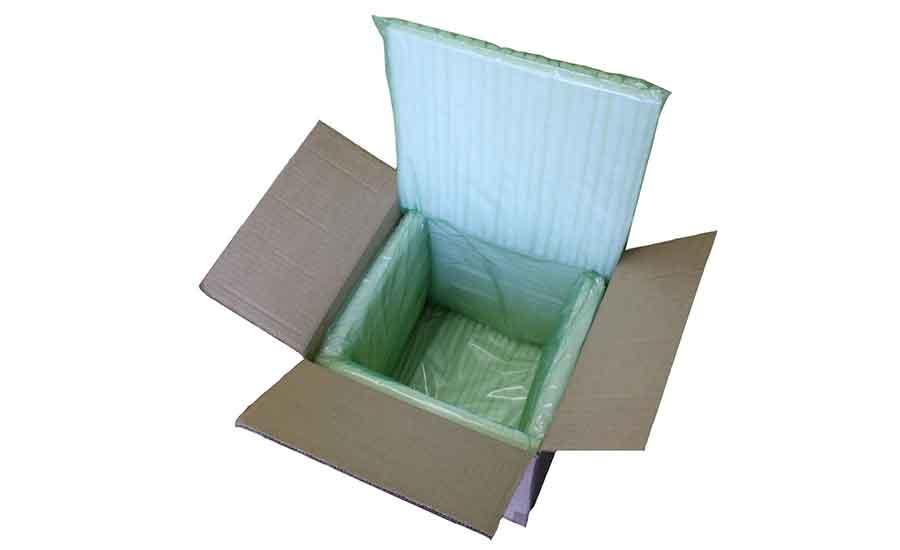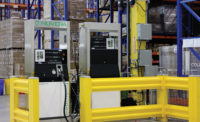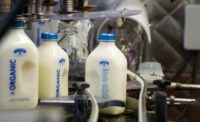Whether a consumer buys retail cold foods or receives a direct-to-consumer (DTC) box of perishable goods on their doorstep, both scenarios leave customers with the burden of packaging disposal. Many environmentally conscious companies along the cold chain see this as an opportunity to minimize, or even eliminate post-consumer packaging waste, through recyclable materials and new products that biodegrade or are compostable.
We spoke with three brands making an effort to evolve their eco-friendly packaging to find out how they balance cost control and conscience: Yasso, makers of Greek yogurt bars sold in stores and DTC; Wildgrain, a DTC startup shipping frozen artisan breads, pastries and pastas; and produce powerhouse Nature Fresh Farms.
Eco-Conscious Costs
Companies can commit to eco-friendly packaging with the goal of improving the environment and reducing waste, but from a business standpoint, food manufacturers still need to turn a profit, so sustainable materials need to fit budgetary guidelines first.
“The cost of sustainable packaging is still more expensive than traditional packaging,” says Luci Faas, product development specialist at Nature Fresh Farms. “If materials used for sustainable packaging become more common, the cost may come down, but we don’t see it yet. A package can be made from sustainably sourced material, be supported by recycling or composting, and have an optimized design, but if the cost of production is too high, it cannot be a sustainable solution for the long term. Since we don’t have much control over the material price, we make sure any new concept packaging works on automated machines to avoid extra labor costs. Besides that, we believe investing in sustainable packaging is an investment in our future.”

Direct-to-consumer startup Wildgrain invested in streamlined packaging and equipment to reduce end-user waste while staying on budget.
Nature Fresh Farms recently took the lead on an innovative plastic reduction initiative for its Long English Cucumbers, using a proprietary compostable wrap. According to the company, it’s the first of its kind in North America, and an alternative to traditional polyethylene plastic. The wrap breaks down in any household compost without leaving behind microplastics, and is made from a starch-based PLA derived from plant-based resources, including non-GMO corn starch, and dissolves naturally into CO2 and water. The company says every 5 million cucumbers wrapped in its compostable film saves the equivalent of 23 million plastic straws from landfills.
Also cost- and eco-conscious is Wildgrain, which launched its DTC monthly subscription box earlier this year, each containing multiple artisan bread loaves, along with hand-made pastries and pastas, all frozen solid from delivery to doorstep. “Typically, eco-friendly packaging remains more expensive than traditional packaging. The amount by which the price has changed truly depends on exactly which packaging items are being purchased,” says Brendan Duttry, director of operations at Wildgrain. “For example, we use eco-friendly insulation liners in all of our boxes to keep our products cold and safe while in transit. The price of eco-friendly insulation, while more expensive than mass-produced Styrofoam insulation, is still less expensive than other synthetic insulation options currently available.
“We absolutely factor eco-friendly packaging into our budget,” Duttry continues. “We’ve prioritized decreasing our costs outside of packaging materials, especially our shipping and product costs, by working hard to rapidly strengthen relationships with our suppliers and partners. I’m happy to say this has enabled us to comfortably continue our mission to minimize the environmental impact of our product.”
Yasso is a familiar brand to many in the frozen dessert aisle of grocery stores across the country, and this year, inspired by the skyrocketing popularity of DTC, launched its online store, shipping Greek yogurt bars in colorful custom-designed boxes, using “biodegradable green foam insulation instead of Styrofoam, which still maintains frozen temperatures and product quality during transit. The green insulation foam can be run under water to dissolve,” notes Kelsey Gill, integrated marketing manager at Yasso. “All Yasso corrugated cases and retail packaging is made of recyclable material, as well as the wooden sticks in our bars. As we readied to launch our DTC online store, identifying and sourcing eco-friendly packaging was a priority for our team knowing the materials typically needed to ship frozen products can be environmentally taxing.”

Nature Fresh Farms created a 100% compostable wrap for its Long English Cucumbers, keeping plastic from landfills.
Supply the Demand
Sometimes, committing to new sustainable packaging materials also means devoting dollars to new machinery to handle that material. Faas says Nature Fresh Farms didn’t have to invest in new equipment to produce their compostable cucumber wrappers, but Duttry says Wildgrain “recently purchased new equipment to upgrade how we seal our breads and pastries. This allows us to use substantially less material to seal each individual product, and it minimizes the shipping volume and frequency to our facility,” he says.
Duttry also says Wildgrain has set aside space to house extra inventory of sustainable packaging products “which has decreased our material cost due to larger and less frequent orders for our eco-friendly packing material. We’re working to decrease the order and shipment frequency for all of our supplies, to further decrease our carbon footprint caused by shipping and transportation,” he says.
The COVID-19 pandemic has amplified the focus on packaging waste due to consumer stockpiling of retail goods and the evolution of DTC and e-commerce as a popular option for temperature-sensitive foods delivered to homes. All of this collides with a fragmented recycling strategy in the U.S., where states and cities can have different guidelines for recycling without federal oversight.


Greek yogurt bar manufacturer Yasso recently opened a direct-to-consumer (DTC) store on its website. Yasso's DTC boxes are made from recyclable material, and inside, the foam insulation is biodegradable, dissolving under water.
“Because of the increase in food delivery to homes, consumers are responsible for more waste removal than ever before. We’re seeing consumers feel the weight of this responsibility already. I believe eco-friendly packaging that is easily recyclable and/or quickly reduced in volume, whether by being biodegradable, compostable, water-soluble, or otherwise, will be embraced by consumers as the type of packaging that they would like companies to use. This will especially be the case if and when consumers experience increased costs of residential waste removal,” Duttry observes.
Faas concludes that “businesses like ours should ensure consumers have access to the information they need to make educated decisions regarding packaging disposal. After all, a sustainable package loses much of its benefit if the end-user doesn’t know how to recycle or dispose of it properly,” she says. “Consumers interact with packaging every day, which means there is substantial opportunity for sustainable packaging solutions to make a big impact.”




